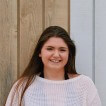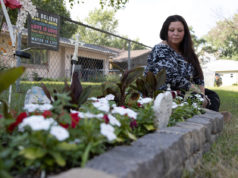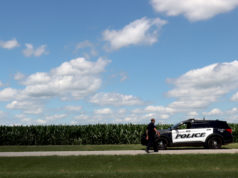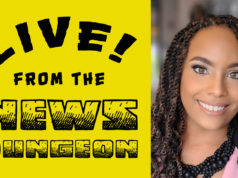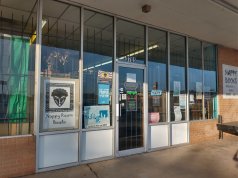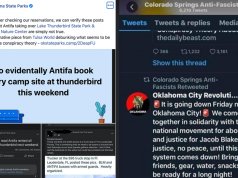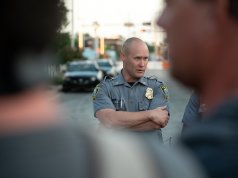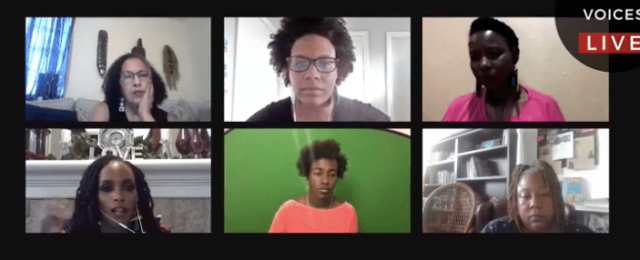

“We have birthed nations. We have nursed nations. We have led, and we continue to.”
This was the sentiment shared by Rev. T. Sheri Dickerson, director of the Oklahoma City chapter of Black Lives Matter, at a roundtable on systemic racism, intersectionality and the role of black women in society, hosted Wednesday by the newly formed group Black Women Voices. The panel, titled Let’s Talk About Race, featured prominent black female Oklahomans in a two-hour discussion streamed via Facebook.
The event, which had more than 450 people watching at its highest count, aimed to share experiences particular to black women that they feel are left out of many conversations.
“I want to talk about systemic racism as the underlying climate of America,” said Camille Landry, a community activist. “Racism is to America as water is to fish. It is the environment in which America lives. It is the environment that created America.”
Panel on race, take two
Wednesday’s panel was conceived largely in response to Gov. Kevin Stitt’s Roundtable on Race, which was broadcast across the state last weekend. Some members of the state’s Legislative Black Caucus criticized that event for lacking diversity. The panel included no women or representatives of the Black Lives Matter movement, which has been instrumental in organizing recent local protests in response to the death of George Floyd.
“We are having this conversation on race because last week Gov. Stitt hosted a conversation about race that didn’t include community leaders on the front lines of justice and it excluded black women,” said Bailey Perkins, who moderated the panel. Perkins was recently named vice chairperson of the Oklahoma Women’s Coalition and asked the five women on the panel to identify what they felt was missing from Stitt’s discussion.
“Black women were not there,” said Chaunte Gilmore, the co-director of New Leaders Council Oklahoma. “We are the heart of our community. How can you have a forum without the heart of your community?”
Dickerson, who admitted she stopped watching Stitt’s panel before it ended, said the governor’s conversation did not attempt to include the black community or speak on issues her group’s members care about.
“One of the things that was missing was intentional intersectionality. One of the things that was missing was deliberate inclusion. And certainly, one thing that was missing was the buy-in of black people,” Dickerson said. “We turned it off because there wasn’t a desire for us to be there.”
Landry criticized Stitt’s event for focusing on interpersonal relationships rather than disparities in education, police violence, achievement and health between blacks and whites, citing high rates of maternal mortality for black women in particular.
“That is systemic racism, and until we address those facts, all the singing Kumbaya and holding hands and smiling at each other doesn’t mean anything at all,” she said
Had she been on the panel Sunday, Dickerson said she would have moved the conversation toward tangible policy changes.
“We would have told them that reparations are appropriate and necessary, and we should not have had to, but we would have told them black lives matter and why,” Dickerson said. “What we’re wanting is for them to be different and work with us to implement change.”
The panelists called for police reform, the dismantling of systemic racism and a larger cultural shift in the perception of black people, and specifically of black women.
Making their own space
Oklahoma City Councilwoman Nikki Nice, who is only the second woman of color to serve on the OKC City Council, emphasized the toll that police brutality takes on black mothers in particular.
“We missed the account of a black woman saying how difficult it is to have that conversation with her black child,” Nice said. “How difficult it is for her to go out every day and just pray to God that wherever her child roams that they will be coming back home because of the atmosphere of what’s taking place in our society, how the black life is not valued.”
Skye Latimer, director of marketing and business development at Folded Owl, expressed a similar fear, responding to a comment Moore Police Chief Todd Gibson made during the governor’s panel.
“Chief Gibson said that the level of stress and trauma that the police endure is just out of this world, and I believe and can’t imagine what it must be like to put on a badge and a gun and enforce the law every day,” Latimer said. “But I can tell you exactly what it feels like to be a black woman married to a black man raising a black son in this country. I can tell you what it feels like to walk into white spaces and know all they see is the color of my skin and couldn’t care less about my accolades.”
The panelists cited experiences of being viewed as an “angry black woman” simply for being excited or passionate, and being discounted in leadership roles.
“I walk into a store and people still clutch their purses,” said Nice.
One issue that resonated with all the women was Euro-centric beauty standards, which sometimes lead to policies banning black girls from wearing their natural hair in school, or attitudes that natural black hair in the workplace is unprofessional.
“They’ve wanted us to adopt a European culture, and they tell us what beauty is and they tell us that it is not us,” said Dickerson.
Many of the disadvantages black Americans face are invisible to white people, Landry said. She shared a story of going to a hospital to seek medical treatment, only to be dismissed before she had even been seen.
“The protocol is that when a black woman enters the hospital, one must first check that that black woman is not drug-seeking,” Landry said. “That is structural racism, and that is something that every black person, every brown person in this country experiences every day.”
‘Check your people. Fix your people.’
Questions from the audience largely centered on how others can best support black women. The panelists encouraged white people to acknowledge their own privilege and to educate themselves on issues of race and discrimination.
“Sitting with that whiteness and doing that soul-digging and reflection, that is being an ally,” Latimer said.
Gilmore and Landry emphasized that the onus is on white people to address the continued effects of racism.
“This is no longer our problem. Racism is no longer our problem,” Gilmore said.
“Get your people. Check your people. Fix your people,” Landry added later.
Panelists also discussed current actions that both black activists and white allies can take, such as amplifying black voices on social media and in community discussions, donating to bail and community funds and Black Lives Matter OKC, showing up to ongoing protests, ensuring diversity and inclusion in leadership positions, advocating for police reform or defunding, and voting.
Allyship, however, Dickerson said, should not detract from the voices and efforts of black women.
“White folks have the audacity to say that they are coming to help empower us when they don’t understand how powerful we are, and that it flows from within each of us from the moment that we were created, so we don’t need your assistance in obtaining, maintaining, or distributing power,” Dickerson said.
“We are human,” Gilmore said. “We are here.”









